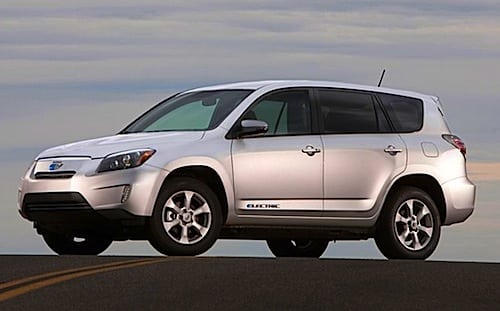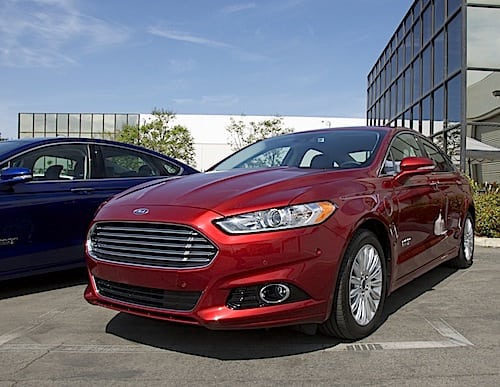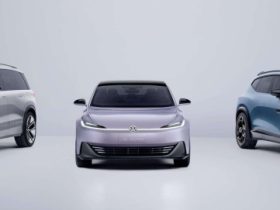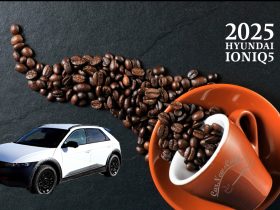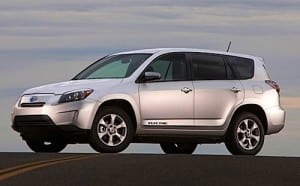
Toyota said it will not make any electric cars in Europe until Europe’s electricity is clean. Can Toyota force the old continent to clean up its energy or is this a self-fulfilling prophecy?
Toyota is an odd bird when it comes to electric cars. Not completely committed to lithium, not absolutely committed to electric cars either, the company has been slow to give us electric cars while it pumps hybrids out the door. And why not after all, when it is finally making a profit on its ever growing line of hybrids, the Prius. This last statement from the company reveals a lot more about how Toyota views the electric car market. In essence, Toyota told Europe it will no longer make electric cars there until electricity becomes cleaner.
Reading Between The Lines. Before we jump to conclusions and blame Toyota for being anti-electric car, the company does make a strong point and is also giving itself a way out from an expensive deal of manufacturing electric cars at a loss. So the question boils down to why should carmakers be left to carry the weight of clean technology? Utilities need to share as much the burden of clean energy as carmakers do with electric vehicles, EV. Well, at least that is the logic behind this statement. The problem isn’t just making electric cars for carmakers, it is making them in a sustainable way, using as little energy as possible, meanwhile increasing their range. Utilities on the other hand have to increase their renewable energy percentage, still low currently, while managing their grids efficiently. Add to this the constant political backlashes that stiffens innovations, and you can see how Toyota’s message is much more then a: “We don’t want to make electric cars”
Clean Energy for Clean Cars. Ideally we’d all like to see 500 mile electric cars made with sustainable energy using the same renewable and clean energy to drive them. The fact is that despite petroleum’s horrendous side effects, this form of energy gave us the goods and riches the Western world enjoys. Nonetheless, it is clear by now that we must move towards more sustainable energies if we are to have a healthier and more prosperous tomorrow.
The automobile industry shouldn’t be left alone to carry the weight of sustainability and utilities need to increase the percentage of sustainable energy sources but Toyota’s statement leaves a taste of self-serving strategy knowing its feeling about electric vehicles, EV in general.
We can see this statement in two ways. Toyota is reluctant to give us electric cars. By telling the European union it won’t until it cleans up its energy it puts the burden back on the European Community. At the same time, Toyota’s statement is a self-fulfilling prophecy saying it makes little sense to build clean energy cars when the energy used is dirty. To this point, we can all agree. This is directly aimed at Germany and England, both heavy users of coal, natural gas and petroleum. Yet, it penalizes countries like Denmark that produces close to 80% of its electricity through its abundant hydro solution or France which produces the same amount from nuclear power plants, Sweden, and Spain who has stepped up its game the past decade with clean energy.
Is Toyota a Clean Company? Is Toyota a clean company that can make such demands? With only a small number of compliance electric cars on the road, such as the excellent Toyota RAV4 EV and a small trial of electric Scion iQ EVs, Toyota hasn’t embraced pure electric cars. The Toyota RAV4 EV is really a Tesla powertrain under a Toyota RAV4. It has taken Toyota almost a decade to give us the plug-in hybrid, PHEV upgrade to the Prius. The Prius PHEV blockbuster sales took the company by surprise, selling out quickly with customers left asking for more. I guess in the end, Toyota feels it is better to continue making gasoline cars until electric vehicles are almost 100% clean.
Toyota moves slowly, pragmatically and has little reasons to start making electric cars until they become feasible. Ultimately consumers have the last word with the greatest tools, buying power. By buying the best products that give us the most sustainable future, we send a clear message to industries and governments alike. Toyota telling the European Union it won’t make electric cars there until it cleans up its energy problem can be seen from both angle.


